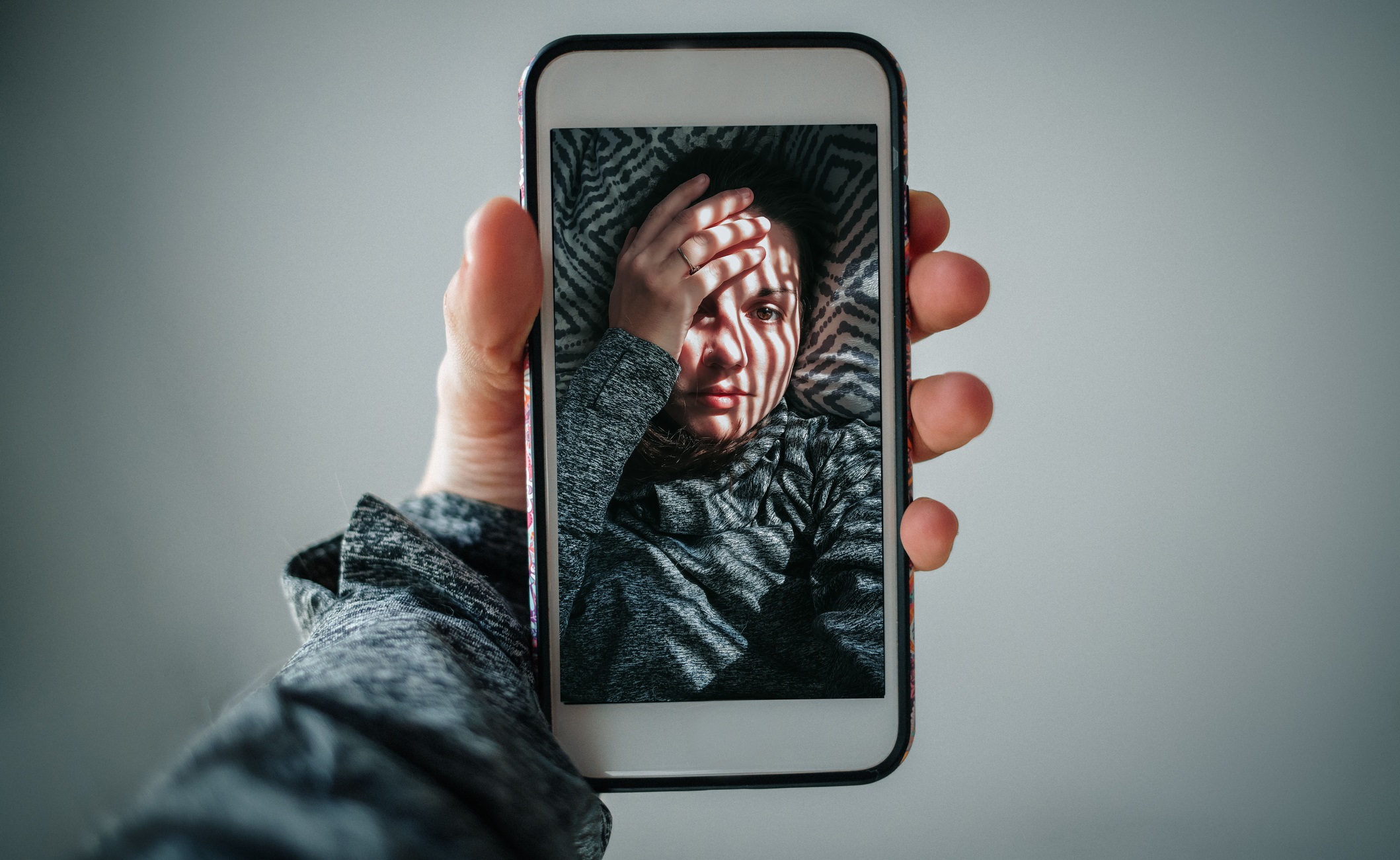Is Instagram bad for mental health? Experts weigh in on how to use the platform more effectively
We've been questioning 'Is Instagram bad for mental health?' for years. Well, it certainly doesn't have to be...


We've been questioning the same thing for years: Is Instagram bad for mental health? Between the need for likes and a verified status—plus the picture-perfect influencers we hold on a pedestal—it's next to impossible not to feel somewhat inadequate while doom scrolling.
But does it need to be this way? Is being authentic on social media actually possible in 2021?
As it turns out, the pressure of the photo-sharing platform is not just in our heads: a recent Wall Street Journal report uncovered that the Facebook officials are aware that Instagram—which Facebook owns—has the potential to wreak havoc on users' mental health, particularly that of teenage girls. Anxiety, depression and body issues all stem from unrealistic and unattainable stature users come across on feeds, but these toxic emotions are not just problematic for young adults.
Instagram users of all ages have felt some type of anxiety at one point or another whilst using the app. The picture-perfect presentation with engagement reveals, vacation stories, and job updates can be enough to make someone crack. What's meant to be a fun, accessible way to connect with people has turned into a grand competition that's led to feelings of deficiency, jealousy, FOMO and so much more.
Fortunately, the user experience doesn't have to be negative—just strategic.
- Big changes are coming to Instagram—here’s everything you need to know
- When is the best time to post on Instagram?
- Britney Spears deleted Instagram—here’s the reason behind her move
Is Instagram bad for mental health?
While, yes, Instagram—and social media as a whole—certainly has the power to make one feel less than, experts believe there is a way to use the app beneficially.
A post shared by Self-Love Coach (@your_selflovecoach)
A photo posted by on
1. Be thoughtful in your approach
When you're feeling bored or thinking about opening up the app, turn your attention towards a good book or a TV show instead. Scrolling with no purpose will likely make you encounter something bothersome.
"I would suggest trying to use Instagram in a more mindful way," says Jacqueline Nesi, an assistant professor in the Department of Psychiatry and Human Behavior at Brown University. "Because of the way social media sites are designed, we often find ourselves opening the apps subconsciously and mindlessly scrolling, without taking stock of how it is affecting our mood or self-esteem."
2. Find (and follow) what makes you happy
If a fitness trainer isn't really giving you the motivation you're looking for, or if a friend's constant public displays of affection are too much to handle, there's no need for a follow. What you consume should be based on what makes you happy, not depressed or inept.
"Does messaging a friend make you feel happy, connected? Does following a certain influencer make you feel worse? Pay attention to these feelings and adjust the way you use the platform accordingly," Nesi says.
(If you feel the need to be gentle, muting an account is one way to limit the content in your feed without actually nixing a user from your following.)
3. Don't seek virtual approval
"Attaching our self-worth to how we think we compare to others who post on social media is also problematic," says Dr. Chris Barry, a professor in the Department of Psychology at Washington State University. "Instead, using social media to connect with others or to keep up with news or topics of interest seem to be more adaptive in terms of well-being."
A post shared by CBT Therapist & Psychologist (@kelly.the.cbt.psychologist)
A photo posted by on
4. If the grass looks greener, it's probably fake
Ironically, a social media meme that has emerged on feeds reads, "If the grass looks greener, it's probably fake."
Nothing is copacetic 24/7/365, no matter what type of persona someone is trying to exude virtually.
5. When in doubt, find furry friends
Truthfully, is there anything better than animals on Instagram? You can always count on a cute pup to add a little brightness to your day.
While there are certainly downsides to interacting virtually (and in-person, of course), learn to do what works best for you. Curate an experience that represents what you want, and don't let a "like" or a hashtag make you feel as though you're not enough.

Need a TV show recommendation? Maybe a few decor tips? Danielle, a digital news writer at Future, has you covered. Her work appears throughout the company’s lifestyle brands, including My Imperfect Life, Real Homes, and woman&home. Mainly, her time is spent at My Imperfect Life, where she’s attuned to the latest entertainment trends and dating advice for Gen Z.
Before her time at Future, Danielle was the editor of Time Out New York Kids, where she got to experience the best of the city from the point of view of its littlest residents. Before that, she was a news editor at Elite Daily. Her work has also appeared in Domino, Chowhound, and amNewYork, to name a few.
When Danielle’s not writing, you can find her testing out a new recipe, reading a book (suggestions always welcome), or rearranging the furniture in her apartment…again.